- Home
- Gustave Flaubert
Bouvard and Pecuchet Page 3
Bouvard and Pecuchet Read online
Page 3
But where could the furniture waggon be? For an hour they called out to it through the darkness. At length it was found, and they arrived at Chavignolles.
A great fire of brushwood and pine-apples was blazing in the dining-room. Two covers were placed there. The furniture, which had come by the cart, was piled up near the vestibule. Nothing was wanting. They sat down to table.
Onion soup had been prepared for them, also a24 chicken, bacon, and hard-boiled eggs. The old woman who cooked came from time to time to inquire about their tastes. They replied, "Oh! very good, very good!" and the big loaf, hard to cut, the cream, the nuts, all delighted them. There were holes in the flooring, and the damp was oozing through the walls. However, they cast around them a glance of satisfaction, while eating on the little table on which a candle was burning. Their faces were reddened by the strong air. They stretched out their stomachs; they leaned on the backs of their chairs, which made a cracking sound in consequence, and they kept repeating: "Here we are in the place, then! What happiness! It seems to me that it is a dream!"
Although it was midnight, Pécuchet conceived the idea of taking a turn round the garden. Bouvard made no objection. They took up the candle, and, screening it with an old newspaper, walked along the paths. They found pleasure in mentioning aloud the names of the vegetables.
"Look here—carrots! Ah!—cabbages!"
Next, they inspected the espaliers. Pécuchet tried to discover the buds. Sometimes a spider would scamper suddenly over the wall, and the two shadows of their bodies appeared magnified, repeating their gestures. The ends of the grass let the dew trickle out. The night was perfectly black, and everything remained motionless in a profound silence, an infinite sweetness. In the distance a cock was crowing.
Their two rooms had between them a little door, which was hidden by the papering of the wall. By knocking a chest of drawers up against it, nails were shaken out; and they found the place gaping open. This was a surprise.25
When they had undressed and got into bed, they kept babbling for some time. Then they went asleep—Bouvard on his back, with his mouth open, his head bare; Pécuchet on his right side, his knees in his stomach, his head muffled in a cotton night-cap; and the pair snored under the moonlight which made its way in through the windows.
* * *
26
CHAPTER II.
Experiments in Agriculture.
How happy they felt when they awoke next morning! Bouvard smoked a pipe, and Pécuchet took a pinch of snuff, which they declared to be the best they had ever had in their whole lives. Then they went to the window to observe the landscape.
In front of them lay the fields, with a barn and the church-bell at the right and a screen of poplars at the left.
Two principal walks, forming a cross, divided the garden into four parts. The vegetables were contained in wide beds, where, at different spots, arose dwarf cypresses and trees cut in distaff fashion. On one side, an arbour just touched an artificial hillock; while, on the other, the espaliers were supported against a wall; and at the end, a railed opening gave a glimpse of the country outside. Beyond the wall there was an orchard, and, next to a hedge of elm trees, a thicket; and behind the railed opening there was a narrow road.
They were gazing on this spectacle together, when a man, with hair turning grey, and wearing a27 black overcoat, appeared walking along the pathway, striking with his cane all the bars of the railed fence. The old servant informed them that this was M. Vaucorbeil, a doctor of some reputation in the district. She mentioned that the other people of note were the Comte de Faverges, formerly a deputy, and an extensive owner of land and cattle; M. Foureau, who sold wood, plaster, all sorts of things; M. Marescot, the notary; the Abbé Jeufroy; and the widow Bordin, who lived on her private income. The old woman added that, as for herself, they called her Germaine, on account of the late Germain, her husband. She used to go out as a charwoman, but would be very glad to enter into the gentlemen's service. They accepted her offer, and then went out to take a look at their farm, which was situated over a thousand yards away.
When they entered the farmyard, Maître Gouy, the farmer, was shouting at a servant-boy, while his wife, on a stool, kept pressed between her legs a turkey-hen, which she was stuffing with balls of flour.
The man had a low forehead, a thin nose, a downward look, and broad shoulders. The woman was very fair-haired, with her cheek-bones speckled with bran, and that air of simplicity which may be seen in the faces of peasants on the windows of churches.
In the kitchen, bundles of hemp hung from the ceiling. Three old guns stood in a row over the upper part of the chimney-piece. A dresser loaded with flowered crockery occupied the space in the middle of the wall; and the window-panes with their green bottle-glass threw over the tin and copper utensils a sickly lustre.28
The two Parisians wished to inspect the property, which they had seen only once—and that a mere passing glance. Maître Gouy and his wife escorted them, and then began a litany of complaints.
All the appointments, from the carthouse to the boilery, stood in need of repair. It would be necessary to erect an additional store for the cheese, to put fresh iron on the railings, to raise the boundaries, to deepen the ponds, and to plant anew a considerable number of apple trees in the three enclosures.
Then they went to look at the lands under cultivation. Maître Gouy ran them down, saying that they ate up too much manure; cartage was expensive; it was impossible to get rid of stones; and the bad grass poisoned the meadows. This depreciation of his land lessened the pleasure experienced by Bouvard in walking over it.
They came back by the hollow path under an avenue of beech trees. On this side the house revealed its front and its courtyard. It was painted white, with a coating of yellow. The carthouse and the storehouse, the bakehouse and the woodshed, made, by means of a return, two lower wings. The kitchen communicated with a little hall. Next came the vestibule, a second hall larger than the other, and the drawing-room. The four rooms on the first floor opened on the corridor facing the courtyard. Pécuchet selected one of them for his collections. The last was to be the library; and, on opening some of the presses, they found a few ancient volumes, but they had no fancy for reading the titles of them. The most urgent matter was the garden.
Bouvard, while passing close to the row of elm trees, discovered under their branches a plaster figure29 of a woman. With two fingers she held wide her petticoat, with her knees bent and her head over her shoulder, as if she were afraid of being surprised.
"I beg your pardon! Don't inconvenience yourself!"—and this pleasantry amused them so much that they kept repeating it twenty times a day for three months.
Meanwhile, the people of Chavignolles were desirous to make their acquaintance. Persons came to look at them through the railed fence. They stopped up the openings with boards. This thwarted the inhabitants. To protect himself from the sun Bouvard wore on his head a handkerchief, fastened so as to look like a turban. Pécuchet wore his cap, and he had a big apron with a pocket in front, in which a pair of pruning-shears, his silk handkerchief, and his snuff-box jostled against one another. Bare-armed, side by side, they dug, weeded, and pruned, imposing tasks on each other, and eating their meals as quickly as ever they could, taking care, however, to drink their coffee on the hillock, in order to enjoy the view.
If they happened to come across a snail, they pounced on it and crushed it, making grimaces with the corners of their mouths, as if they were cracking nuts. They never went out without their grafting implements, and they used to cut the worms in two with such force that the iron of the implement would sink three inches deep. To get rid of caterpillars, they struck the trees furiously with switches.
Bouvard planted a peony in the middle of the grass plot, and tomatoes so that they would hang down like chandeliers under the arch of the arbour.
Pécuchet had a large pit dug in front of the kitchen, and divided it into three parts, where he30 could manufacture composts which
would grow a heap of things, whose detritus would again bring other crops, providing in this way other manures to a limitless extent; and he fell into reveries on the edge of the pit, seeing in the future mountains of fruits, floods of flowers, and avalanches of vegetables. But the horse-dung, so necessary for the beds, was not to be had, inasmuch as the farmers did not sell it, and the innkeepers refused to supply it. At last, after many searches, in spite of the entreaties of Bouvard, and flinging aside all shamefacedness, he made up his mind to go for the dung himself.
It was in the midst of this occupation that Madame Bordin accosted him one day on the high-road. When she had complimented him, she inquired about his friend. This woman's black eyes, very small and very brilliant, her high complexion, and her assurance (she even had a little moustache) intimidated Pécuchet. He replied curtly, and turned his back on her—an impoliteness of which Bouvard disapproved.
Then the bad weather came on, with frost and snow. They installed themselves in the kitchen, and went in for trellis-work, or else kept going from one room to another, chatted by the chimney corner, or watched the rain coming down.
Since the middle of Lent they had awaited the approach of spring, and each morning repeated: "Everything is starting out!" But the season was late, and they consoled their impatience by saying: "Everything is going to start out!"
At length they were able to gather the green peas. The asparagus gave a good crop; and the vine was promising.31
Since they were able to work together at gardening, they must needs succeed at agriculture; and they were seized with an ambition to cultivate the farm. With common sense and study of the subject, they would get through it beyond a doubt.
But they should first see how others carried on operations, and so they drew up a letter in which they begged of M. de Faverges to do them the honour of allowing them to visit the lands which he cultivated.
The count made an appointment immediately to meet them.
After an hour's walking, they reached the side of a hill overlooking the valley of the Orne. The river wound its way to the bottom of the valley. Blocks of red sandstone stood here and there, and in the distance larger masses of stone formed, as it were, a cliff overhanging fields of ripe corn. On the opposite hill the verdure was so abundant that it hid the house from view. Trees divided it into unequal squares, outlining themselves amid the grass by more sombre lines.
Suddenly the entire estate came into view. The tiled roofs showed where the farm stood. To the right rose the château with its white façade, and beyond it was a wood. A lawn descended to the river, into which a row of plane trees cast their shadows.
The two friends entered a field of lucern, which people were spreading. Women wearing straw hats, with cotton handkerchiefs round their heads, and paper shades, were lifting with rakes the hay which lay on the ground, while at the end of the plain, near the stacks, bundles were being rapidly flung into a long cart, yoked to three horses.32
The count advanced, followed by his manager. He was dressed in dimity; and his stiff figure and mutton-chop whiskers gave him at the same time the air of a magistrate and a dandy. Even when he was speaking, his features did not appear to move.
As soon as they had exchanged some opening courtesies, he explained his system with regard to fodder: the swathes should be turned without scattering them; the ricks should be conical, and the bundles made immediately on the spot, and then piled together by tens. As for the English rake, the meadow was too uneven for such an implement.
A little girl, with her stockingless feet in old shoes, and showing her skin through the rents in her dress, was supplying the women with cider, which she poured out of a jug supported against her hip. The count asked where this child came from, but nobody could tell. The women who were making the hay had picked her up to wait on them during the harvesting. He shrugged his shoulders, and just as he was moving away from the spot, he gave vent to some complaints as to the immorality of our country districts.
Bouvard eulogised his lucern field.
It was fairly good, in spite of the ravages of the cuscute.[2]
The future agriculturists opened their eyes wide at the word "cuscute."
On account of the number of his cattle, he resorted to artificial meadowing; besides, it went well before the other crops—a thing that did not always happen in the case of fodder.33
"This at least appears to me incontestable."
"Oh! incontestable," replied Bouvard and Pécuchet in one breath. They were on the borders of a field which had been carefully thinned. A horse, which was being led by hand, was dragging along a large box, mounted on three wheels. Seven ploughshares below were opening in parallel lines small furrows, in which the grain fell through pipes descending to the ground.
"Here," said the count, "I sow turnips. The turnip is the basis of my quadrennial system of cultivation."
And he was proceeding to deliver a lecture on the drill-plough when a servant came to look for him, and told him that he was wanted at the château.
His manager took his place—a man with a forbidding countenance and obsequious manners.
He conducted "these gentlemen" to another field, where fourteen harvesters, with bare breasts and legs apart, were cutting down rye. The steels whistled in the chaff, which came pouring straight down. Each of them described in front of him a large semicircle, and, all in a line, they advanced at the same time. The two Parisians admired their arms, and felt smitten with an almost religious veneration for the opulence of the soil. Then they proceeded to inspect some of the ploughed lands. The twilight was falling, and the crows swooped down into the ridges.
As they proceeded they met a flock of sheep pasturing here and there, and they could hear their continual browsing. The shepherd, seated on the stump of a tree, was knitting a woollen stocking, with his dog beside him.34
The manager assisted Bouvard and Pécuchet to jump over a wooden fence, and they passed close to two orchards, where cows were ruminating under the apple trees.
All the farm-buildings were contiguous and occupied the three sides of the yard. Work was carried on there mechanically by means of a turbine moved by a stream which had been turned aside for the purpose. Leathern bands stretched from one roof to the other, and in the midst of dung an iron pump performed its operations.
The manager drew their attention to little openings in the sheepfolds nearly on a level with the floor, and ingenious doors in the pigsties which could shut of their own accord.
The barn was vaulted like a cathedral, with brick arches resting on stone walls.
In order to amuse the gentlemen, a servant-girl threw a handful of oats before the hens. The shaft of the press appeared to them enormously big. Next they went up to the pigeon-house. The dairy especially astonished them. By turning cocks in the corners, you could get enough water to flood the flagstones, and, as you entered, a sense of grateful coolness came upon you as a surprise. Brown jars, ranged close to the barred opening in the wall, were full to the brim of milk, while the cream was contained in earthen pans of less depth. Then came rolls of butter, like fragments of a column of copper, and froth overflowed from the tin pails which had just been placed on the ground.
But the gem of the farm was the ox-stall. It was divided into two sections by wooden bars standing upright their full length, one portion being reserved35 for the cattle, and the other for persons who attended on them. You could scarcely see there, as all the loopholes were closed up. The oxen were eating, with little chains attached to them, and their bodies exhaled a heat which was kept down by the low ceiling. But someone let in the light, and suddenly a thin stream of water flowed into the little channel which was beside the racks. Lowings were heard, and the horns of the cattle made a rattling noise like sticks. All the oxen thrust their muzzles between the bars, and proceeded to drink slowly.
The big teams made their way into the farmyard, and the foals began to neigh. On the ground floor two or three lanterns flashed and then disappeared. The work
people were passing, dragging their wooden shoes over the pebbles, and the bell was ringing for supper.
The two visitors took their departure.
All they had seen delighted them, and their resolution was taken. After that evening, they took out of their library the four volumes of La Maison Rustique, went through Gasperin's course of lectures, and subscribed to an agricultural journal.
In order to be able to attend the fairs more conveniently, they purchased a car, which Bouvard used to drive.
Dressed in blue blouses, with large-brimmed hats, gaiters up to their knees, and horse-dealers' cudgels in their hands, they prowled around cattle, asked questions of labourers, and did not fail to attend at all the agricultural gatherings.
Soon they wearied Maître Gouy with their advice, and especially by their depreciation of his system of fallowing. But the farmer stuck to his routine. He36 asked to be allowed a quarter, putting forward as a reason the heavy falls of hail. As for the farm-dues, he never furnished any of them. His wife raised an outcry at even the most legitimate claims. At length Bouvard declared his intention not to renew the lease.
Thenceforth Maître Gouy economised the manures, allowed weeds to grow up, ruined the soil; and he took himself off with a fierce air, which showed that he was meditating some scheme of revenge.
Bouvard had calculated that 20,000 francs, that is to say, more than four times the rent of the farm, would be enough to start with. His notary sent the amount from Paris.

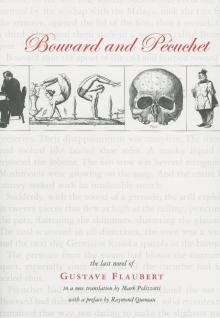 Bouvard and Pecuchet
Bouvard and Pecuchet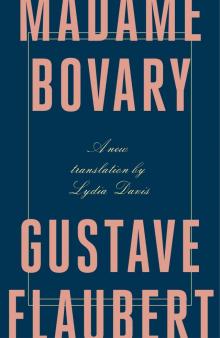 Madame Bovary
Madame Bovary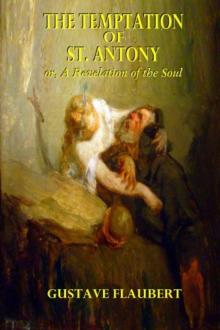 The Temptation of St. Antony
The Temptation of St. Antony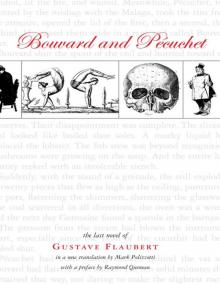 Bouvard and Pécuchet: A Tragi-comic Novel of Bourgeois Life, part 1
Bouvard and Pécuchet: A Tragi-comic Novel of Bourgeois Life, part 1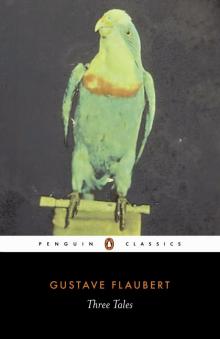 Three Tales
Three Tales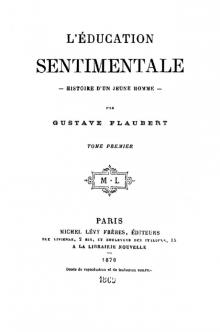 Education sentimentale. English
Education sentimentale. English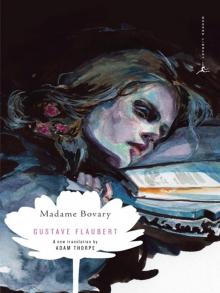 Madame Bovary (Modern Library)
Madame Bovary (Modern Library)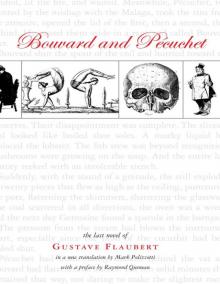 Bouvard and Pécuchet: A Tragi-comic Novel of Bourgeois Life, part 2
Bouvard and Pécuchet: A Tragi-comic Novel of Bourgeois Life, part 2 Sentimental Education; Or, The History of a Young Man. Volume 1
Sentimental Education; Or, The History of a Young Man. Volume 1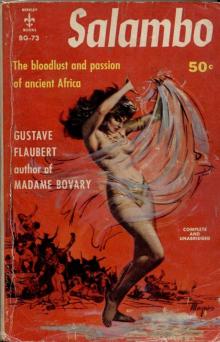 Salammbo
Salammbo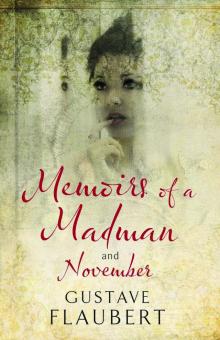 Memoirs of a Madman and November
Memoirs of a Madman and November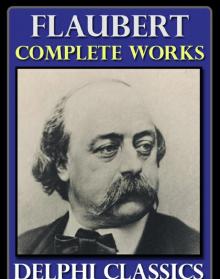 Complete Works of Gustave Flaubert
Complete Works of Gustave Flaubert